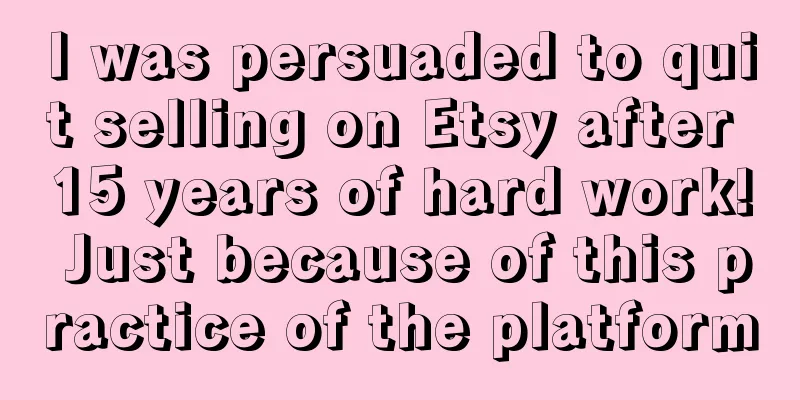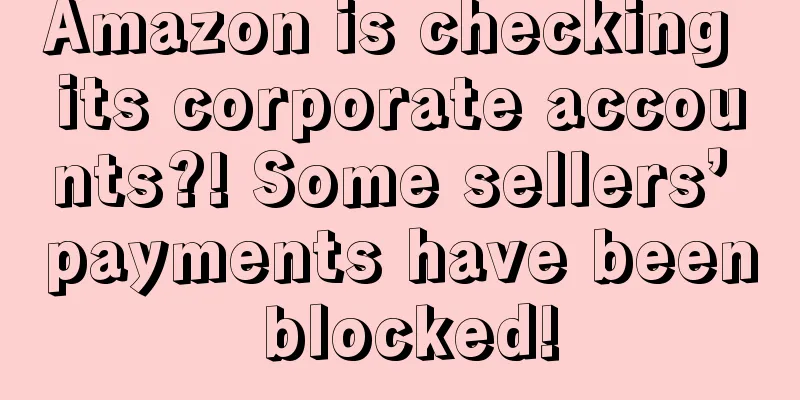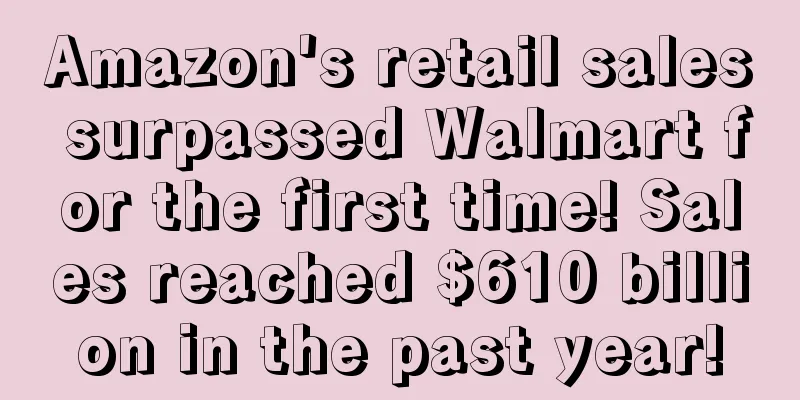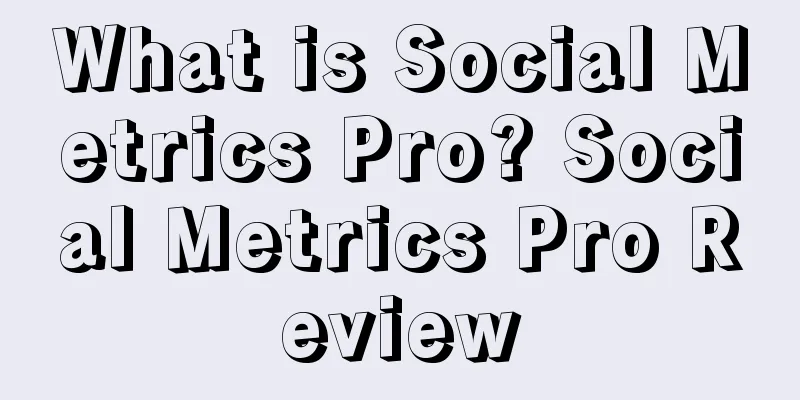I was persuaded to quit selling on Etsy after 15 years of hard work! Just because of this practice of the platform

|
It is learned that after third-party sellers took action against rising platform fees, Etsy's approach to dealing with federal sales tax once again angered sellers, and some sellers who have been selling for more than 10 years even quit Etsy.
On social media and in Etsy's seller community forums, a growing number of sellers are complaining about Etsy's handling of a new federal law requiring tech giants including Amazon, Netflix, eBay and others to collect sales tax from their Canadian customers.
The federal government announced the policy at the end of 2020 and it will take effect on July 1, 2021. Platforms have a 12-month grace period to implement the policy. Different companies have adopted different strategies. For example, Amazon allows sellers on its market to collect and remit taxes on the goods they sell, while eBay centrally collects and remits taxes on behalf of sellers.
But Etsy took a more sophisticated approach.
Etsy's first communication with sellers about its new rules was on May 31, 2021, a month before the policy came into effect. The new policy stipulates that Etsy will begin collecting and remitting sales tax for sellers who have not yet paid taxes. Businesses with sales of less than $30,000 in a year do not need to register with the Canada Revenue Agency (CRA) to collect and remit sales tax.
But sellers who were already collecting and paying those taxes are now being told they can no longer charge customers sales tax at checkout. Instead, Etsy says those sellers should raise prices to collect any required taxes and then remit them to the appropriate taxing authority along with their GST/HST or QST tax returns.
Margaret Maringgele, who has been selling handmade wooden Christmas ornaments through the online marketplace Etsy for nearly a decade, said even with her background in banking and accounting, Etsy's practices made the financial aspects of selling on the platform more complicated.
"We are forced to either charge some customers more or take a hit to our profit margins," Maringgele said.
Cindy Baldassi, a seller on the Etsy platform for 14 years, said the practice recommended by Etsy is detrimental to her business because it makes her prices appear higher than those of competitors who are not required to include taxes in their retail prices.
And because different provinces have different sales tax rates (ranging from 5% to 15%), she would have to calculate an average increase to cover the various rates, while also keeping track of which jurisdiction the buyer is in so she can remit the appropriate amount to the CRA.
Baldassi said she has decided to close her Etsy store because of this sales tax issue and she won't be returning unless they find a more seller-friendly way to handle sales taxes.
Etsy has also angered sellers in other ways this year. In April, thousands of sellers around the world boycotted the platform when it raised its transaction fee from 5% to 6.5%. In August, Etsy began collecting sales tax on its service fees from Canadian sellers.
Editor✎ Ashley/ Disclaimer: This article is copyrighted and may not be reproduced without permission. |
<<: Etsy to invest more than $600 million in marketing for 2022 holiday sales season
Recommend
Walmart announces acquisition of Volt Systems to strengthen supply chain management!
<span data-docs-delta="[[20,"获悉,据外媒报道,近日沃尔...
What is Midianyun (Beijing) Technology Co., Ltd.? Midianyun (Beijing) Technology Co., Ltd. Review
Midianyun (Beijing) Technology Co., Ltd. accuratel...
What is Spinnerchief? Spinnerchief Review
Spinnerchief is a very powerful pseudo-original so...
What is EFTA? EFTA Review
The European Free Trade Association is also known ...
What is Lookbook? Lookbook Review
Lookbook is a website for street photography of fo...
What are the essential elements to create a hit product on Amazon?
focus on What do we at Amazon care about most and...
What is Saramore? Saramore Review
Shenzhen Saramore E-Commerce Co., Ltd. ("Sara...
In the post-epidemic era, how do part-time vendors choose products? How do they find the right track for themselves? How do they keep up with the times in their operational thinking?
Anonymous user My C position Background introducti...
What is IXSPY? IXSPY Review
IXSPY is a product selection tool for AliExpress/S...
What is iCraftGifts? iCraftGifts Review
iCraftGifts aims to connect artists, designers and...
Revealing the Amazon hot-selling product selection method that easily sells 60 times the sales target
1. ANKER CEO teaches you how to copy Anker Innova...
A large number of sellers have seen a sharp drop in orders? Don’t panic, here are two good news!
▶ SellerSprite & Cross-border Ant Discount Co...
American college students love to shop on Amazon! These are the categories they often buy
It is learned that according to foreign media repo...
What is Shopping Actions? Shopping Actions Review
On March 21, Google announced a new plan called &q...
There is a risk of burns! CPSC recalls 440,000 Starbucks mugs
It is learned that the U.S. Consumer Product Safet...









